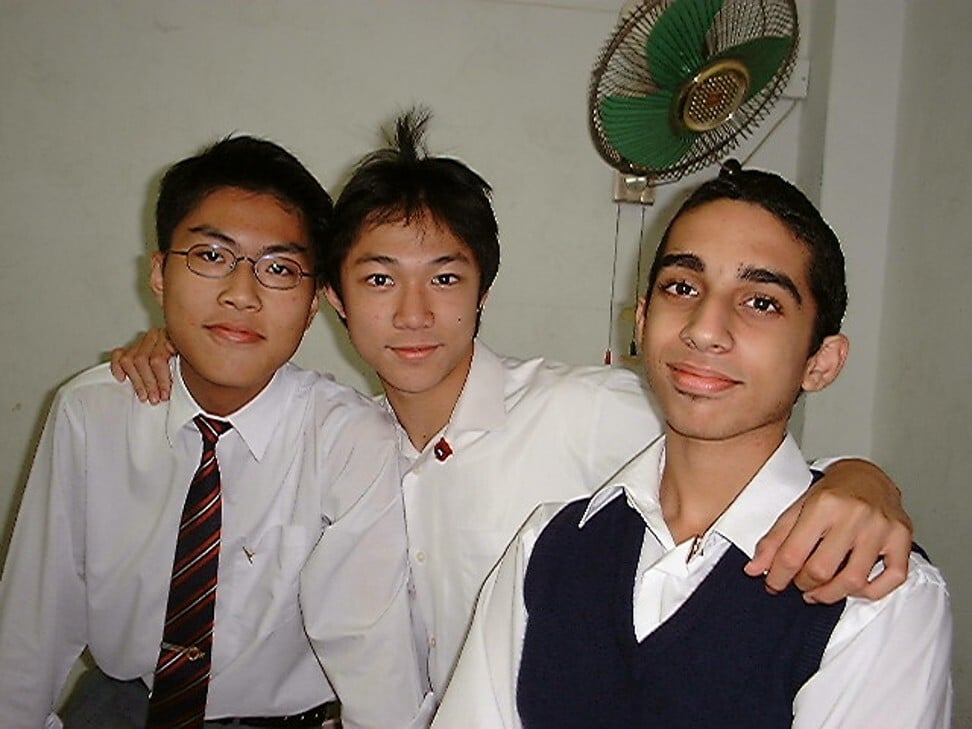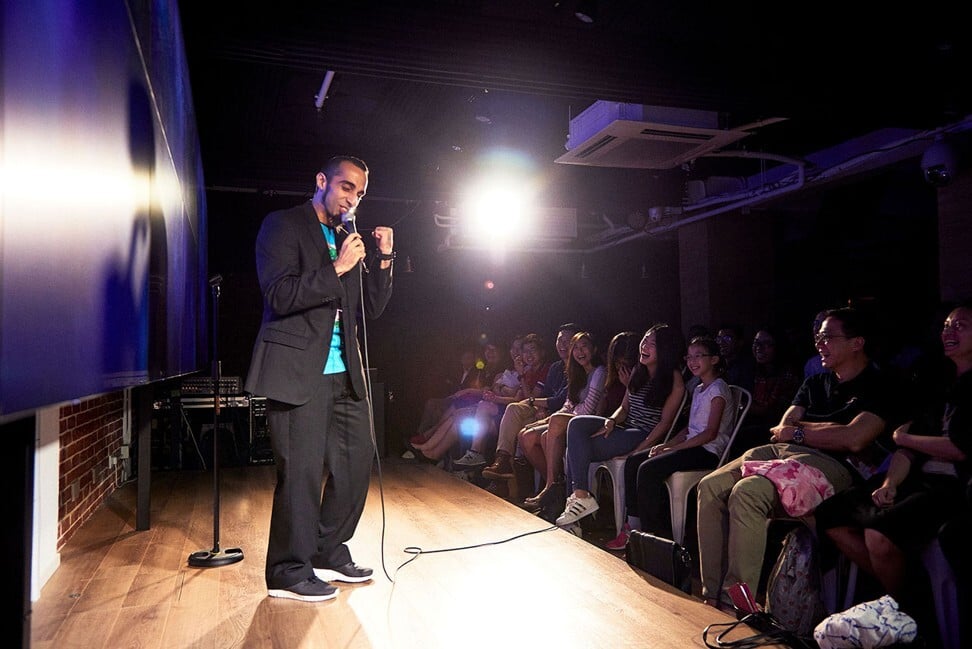
How comedian Vivek Mahbubani came to be the funniest person in Hong Kong – in both Cantonese and English
- Born and raised in the city, Mahbubani shares his experience of realising ‘it’s not wrong to be Indian, it’s just different’
- ‘Hong Kong is such a crazy city that we need to laugh about it to relieve the tension’

Hongkongers: I was born in Hong Kong in 1982; my parents are Indian. I have a sister who is two years older than me. We are third-generation Hongkongers, Hong Kong is home for us. My mother was an English teacher at a local school and my dad was “in business” as he blanket-termed it: “If it makes money, I’m doing it.”
My parents realised the limitations of not speaking Cantonese, so they wanted my sister and I to learn. I think they were too lazy to learn themselves. They sent us to local schools. I went to St Joseph’s Primary School in Wan Chai and had to learn to read and write Chinese. There were only five non-Chinese kids in the school.
By Primary Two I was struggling and came second last in Chinese in my year. My parents couldn’t help me with my Chinese homework, and they were worried. I got a private tutor and then went to a private tutorial college after school. I hated it, but it helped me a lot and my grades improved, and I learned to speak fluently.
Fitting in: For secondary school I went to Diocesan Boys’ School in Mong Kok. It was an all-boys school and there were only four non-Chinese students. I was fluent in Cantonese, but there was always that initial impression of “oh, you look different from me.” I was a typical teenager trying to fit in and find my identity. The first few years there was a lot of jostling and people making fun: “You have a lot of body hair, you look like a monkey.”

Identity crisis: The biggest challenge for my identity was when I started meeting girls. Every year the school collaborated with a girls’ school to hold a dance ball and I was on the organising committee. When we met the girls to arrange the party, one of the girls pulled back when she was introduced to me. I was mortified. I just thought, “Why can’t I just be normal – be Cantonese, speak Cantonese, simple? Why is it that everywhere I go I have to explain myself?”
I spoke to friends and my mom and wrote angry messages in my journal. Over a year or two I realised it’s not wrong to be Indian, it’s just different. It wasn’t my fault that girl didn’t say hi, it’s her loss, I was ready to be friendly. I decided, I can either fight this or embrace who I am.
One of them: When I got to City University to study Creative Media, I was cool with who I was. If anything, I was enjoying the fact that I was not Chinese and could speak Cantonese. For many students, I was the first non-Chinese kid they’d interacted with on a daily basis. I was one of them. I graduated with first class honours. My teachers gave me the opportunity to do freelance work – I got paid, I loved it, and carried on after I graduated.
Getting real: I noticed the real world is very different from what they teach in class, so after a year I went back to my professors and told them they were teaching rubbish. I was hired as a research assistant to rewrite the course and make it more practical and then hired as an instructor to teach. I did that for one semester and then stopped, partly because I wanted to work more in creative media but also because, in 2006, I was diagnosed with lymphoma.
I was out of action for six months doing chemotherapy. It taught me that every moment is precious. I started reading a lot of philosophy and self-help books. When I recovered, I worked at a design firm for six months and then went out on my own as a self-employed web designer.
Funny guy: I grew up watching a lot of comedy, sitcoms like Seinfeld and The Fresh Prince of Bel-Air. I always liked the idea of one guy holding a mic and talking, so when I heard about a comedy competition in 2007, I decided to enter for fun. I didn’t know what to expect or what I was doing. I was stressed out and nervous. I wanted to just try it, to tick it off my bucket list. So, I did it and really enjoyed it.
That year I was crowned the Funniest Person (in Chinese) in Hong Kong. The following year I won in the English category. I think because I’d been watching so much comedy the instinct was there. And I’d been writing things down, ideas about daily life in Hong Kong, especially about my identity as a Cantonese speaker but not being Chinese. People noticed me and opportunities came up to do charity events for free, I’d take it and I built my brand.
Comedy career: RTHK hired me to host a Cantonese show called Hong Kong Stories talking about non-Chinese. In 2009, I started being an MMA (mixed martial arts) ring announcer, wearing a tie. I started going regularly to Singapore where the scene was developing with Comedy Masala (a weekly stand-up comedy show). I get invited to Kuala Lumpur’s annual Kings and Queens of Comedy, where they fly in comedians from around Asia.
In 2014, I joined a competition called the Funniest Person in the World, by the Laugh Factory in the US, and got to the top 10. In 2010, the Melbourne International Comedy Festival picked me to represent Hong Kong in the inaugural Comedy Zone Asia group and I’ve been doing the festival every year since.
Just for laughs: I like Western-style comedy, which is more casual, “What’s your name, sir?” With the more local style, there’s no “What do you do for a living?” In Hong Kong, English-speaking audiences are way more willing to come to a show without knowing who you are. Cantonese think stand-up comedy means a big, two-hour show in a theatre, not a guy in the corner of a bar with a mic.
The younger Hong Kong generation are more knowledgeable about Western-style stand-up. They want to laugh. Hong Kong is such a crazy city and there is so much comedy material out there and people are willing to laugh about it. It’s so crazy we need to laugh about it to relieve the tension.

Extracurricular activity: Four years ago, I decided to go full time with comedy as well as teaching online comedy classes as an extracurricular activity for some schools – it’s good for creative thinking, confidence building, knowing yourself, looking at something from a different angle.
When they announced they would stop alcohol sales because of coronavirus, I said, “Everyone get your beer and go back home and let’s do a show.” And that’s how I started doing Facebook live comedy. I do it mostly in Cantonese and record it in my bedroom. It has become a thing, people seem to be interacting.
Comedy isn’t about living a funnier life, it’s learning to see the funny side of things and finding how to tell people about the funny side.